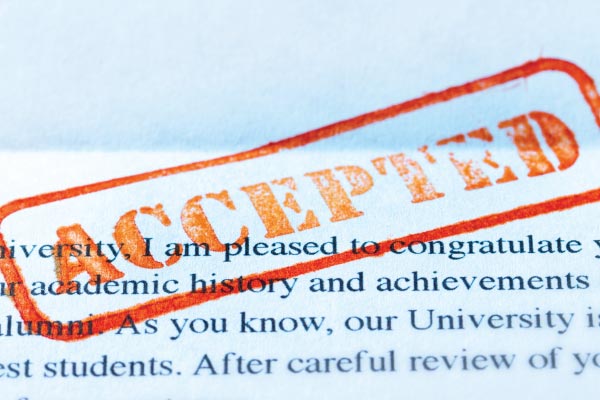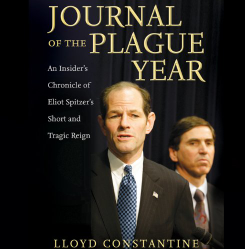Reaction to and commentary about the college admissions scandal is a silly season sprinkled with liberal doses of hyperbole, feigned shock, but mainly inapposite and excessive reactions. These began right after the reflexive “what do we wish for:”
A. I hope my school wasn’t one of those involved; or
B. I hope my school is prestigious enough for parents to lie, cheat and bribe their kids in.
The scam orchestrated by William (“Rick”) Singer, CEO of The Key, a college counseling and life-coaching company, to date involves just nine schools and roughly 750 families over a period of eight years. Hardly proof that America is not, no longer is, never was a meritocracy. There is plenty of support for each of those propositions, just not in this scam. Similarly, we must look elsewhere to prove or dispute the constantly repeated assertion that elite college admission is pervasively rigged to favor the rich.

William (“Rick”) Singer
Let’s start right there. HL is an alum of an elite college, not one in this scandal, but as selective as any and far more than most of those named. The class being admitted this week will be half or slightly less than that percentage white. Those admitted will have gotten in without regard to their need for financial aid and will include students in DACA status or simply undocumented. The class will include many students actively recruited because they are from low income families.
Once this class is admitted on this “need blind” basis, the “full need” of every admitted student will be met. Roughly half of the class will receive financial aid, and that will average $50,000 each year for each student receiving aid. It will average $60,000 annually for foreign students in need. Fifteen percent of this class of 2023 will pay nothing. Not tuition, room, board, fees, foreign course travel – Nada.
HL is proud of this picture, but roughly the same “need blind/full need met” policy is utilized by virtually all of the most highly selective schools in our nation – using their endowments – the money they get, for the most part, from alumni.

Lori Loughlin
That 750 students were faked, cheated or bribed by their parents into nine schools, of which several are not highly selective, proves little, other than that cheating and scams occur in every area of human endeavor. This particular scam is quantitatively insignificant. It has however spawned several of the silliest lawsuits in a field where silliness is in great supply. In one, parents are suing Lori Loughlin and Felicity Huffman for $500 billion. In another, two Stanford students sued the other schools where they allege the fraud hurt their chances of admission. “So” as people of their age like to start every sentence, plaintiffs Erica Olsen and Kalea Woods, who are Stanford students, allege the scam hurt their chances for admission to the University of San Diego and Wake Forest. There are many more such lawsuits, to which a special chapter of Rule 11 of the Federal Rules of Civil Procedure will someday be devoted.
A much bigger deal than Rick Singer’s scheme and one that is either sacramental or scandalous, depending upon one’s worldview, is one forming the basis of a very serious and well-pleaded lawsuit, involving the admissions practices at Harvard. The Crimson allegedly discriminate against Asian-American applicants. And as with the suite of “need-blind-full need met – active recruitment of those with low income” policies, employed by the most elite and highly selective schools, those same schools are doing pretty much the same things with regard to Asian-American applicants. One of the most powerful pieces of evidence in the Harvard trial last fall (and still unresolved) was a document authored by a Harvard admissions officer describing an Asian-American applicant with perfect SAT and subject SAT scores, and first in a class of roughly 600, as the “proverbial picket fence”. The student was wait-listed and ultimately rejected.

Felicity Huffman
When reading about the current admissions scam, our second thought (we already told you the first) was that this rejected student’s parents should have hired Mr. Singer and The Key to lop a few points off their kid’s SAT scores and grades and then perhaps stand apart and be admitted at Cambridge 02138.
Other silliness spawned, involves the roles of athletics and legacy status in admissions.
Long and loud has been the call to eliminate any weight in admissions for standout athletes. There are places where that policy substantially prevails, like Caltech, MIT and the University of Chicago. At Chicago, Robert Maynard Hutchins converted the school from an intercollegiate sports powerhouse to intramural level athletics. The wisdom and effects of Hutchins’ program are hotly debated 75 years after implementation. Probably because many of the best academic schools have among the most successful athletic programs and mimic the philosophy of the models for American higher education, Oxford and Cambridge, CB2 3BU.

Robert Maynard Hutchins
The demand that legacy status should have no weight ignores how intertwined legacy treatment is with human nature. As briefly noted, the most selective schools have such large endowments and are so generous and diverse, so aggressive in recruiting first gen and low-income kids, because of the generosity of alumni. HL’s reunion class, will this June, present the college with a full scholarship to be awarded on the basis of need – the only basis that the college considers when awarding scholarships. HL has established a similar scholarship as well. This powerful philanthropic mechanism is largely based on families that love their schools, “give back and forward” to them and try to send their offspring there to do the same thing.
Revealing comments about the admissions scam and its supposed relationship to legacy status were made last Sunday on NPR’s All Things Considered, hosted by Michel Martin. She interviewed three Georgetown seniors about the scandal and after a round of the type of reactions we flagged at the outset, Martin finally asked two of the students a serious question about their likely attitude toward legacy status when their kids apply to Georgetown.
Both students betrayed ambivalence born of what the party line is and how they really feel. One said, “I would hope that they would be able to get in based on the work that they do. And I would know that I have the privilege of having gone to Georgetown and having the ability to help my child if they do go through the process.” The other answered, “I don’t always want to put my kid at a position to where he got to a place and disregarded the work that was put in before that, meaning that if he is – I’m going to put my son or daughter in the best position possible being that I just feel education is key. Put him in the right schools.”
While college admissions policy should be constructed according to the “better angels of our nature” it is doomed unless that nature is human. We predict that twenty years hence, the Georgetown applications of these students’ kids will prominently declare that Mom or Dad was a Hoya.



0 Comments